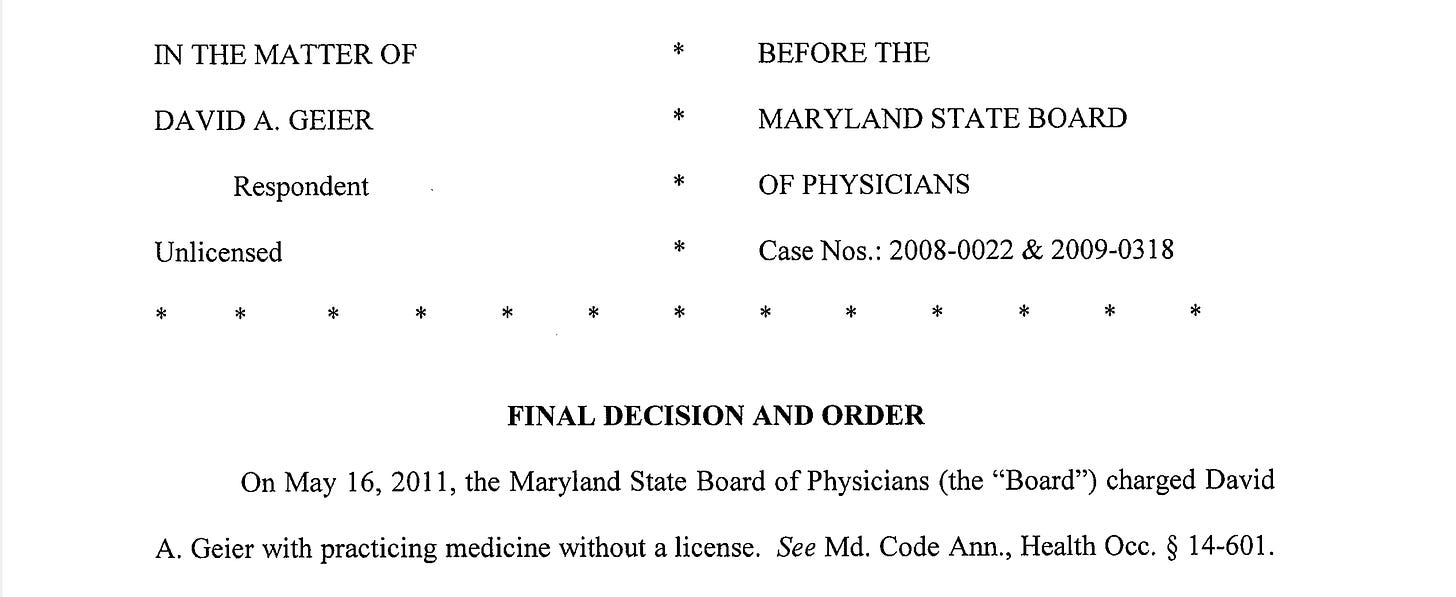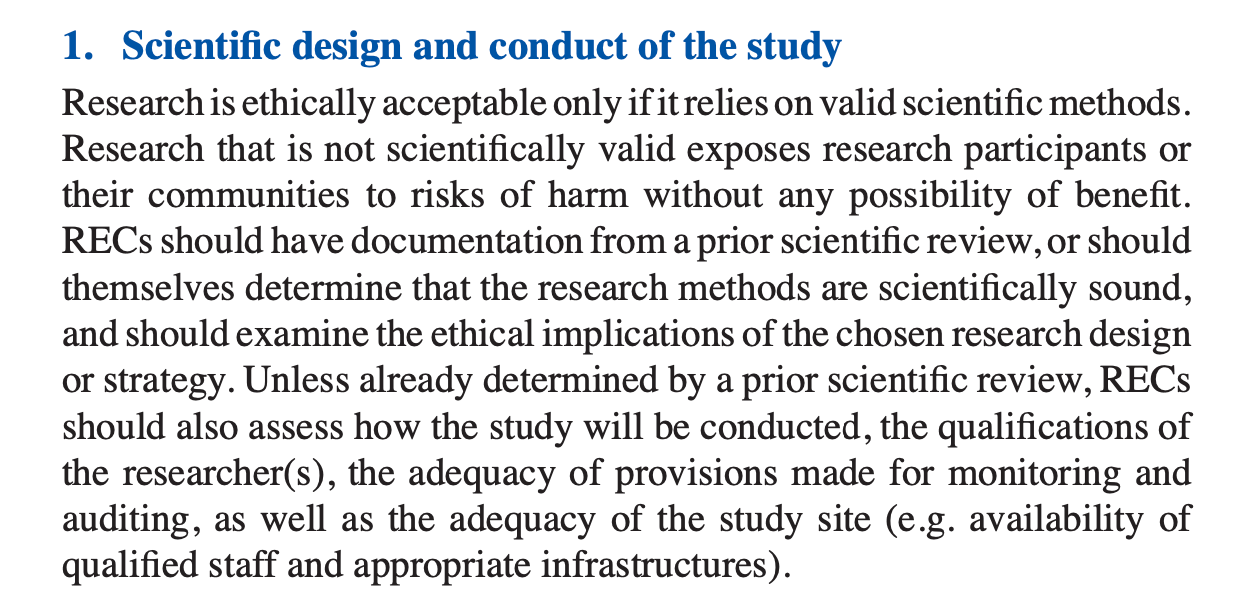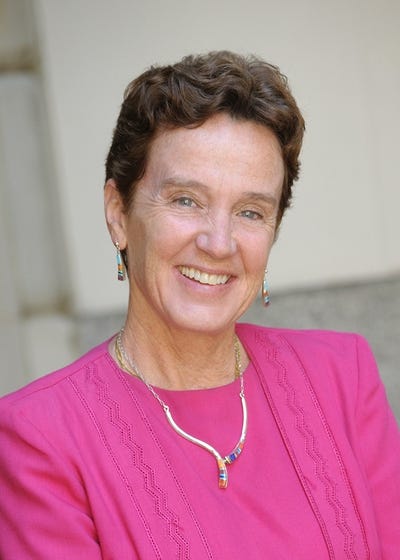Dr. Christine Grady, NIH Bioethics Leader and Consent Expert, “Resassigned” in Purge
The Dismantling of NIH Bioethics Paves the Way for Unethical Research
Why was Christine Grady removed from NIH? Who is Christine Grady? What does this have to do with Anthony Fauci?
Years ago, I co-authored a chapter with a prominent bioethics scholar named Dr. Christine Grady in her book Moral Distress in Health Professions (co-edited with Dr. Christine Ulrich). It was one of my early opportunities to discuss moral distress experiences that were experienced beyond the population typically studied: nurses.
I was honored and excited to work with Professor Grady. She is widely respected in the field of bioethics. In addition to her many academic accomplishments, she became the Chief of the Department of Bioethics at the NIH Clinical Center and is known overwhelmingly as a good person and a solid mentor. When she would reach out to me about open positions at NIH, I knew the positions and the cross-country move weren’t the right fit for me, but I did fantasize about what it would be like to work with her more closely.
It wasn’t until the pandemic that I discovered a wild factoid about Professor Grady’s personal life: she is married to Dr. Anthony Fauci.
Yes, the perhaps most famous infectious disease physician in the country. That guy. You may never have heard of Christine Grady, but you’ve probably heard of Anthony Fauci.
Injustice Under the Guise of “Reorganization”
Last Tuesday, Professor Grady, one of the country’s most respected bioethicists, was effectively removed from her long-held position as Chief of the Department of Bioethics. This reassignment marks a grim milestone in a systematic purging of scientific and ethical leadership across the U.S. Department of Health and Human Services (HHS). Until recently, the NIH was a bipartisan area of agreement, ensuring science served the public good, not political ideology.
Reportedly, she was offered reassignment to an Indian Health Service (IHS) regional office far from her Bethesda, Maryland home or quit. It’s offensive to offer a false choice of a faraway place. It’s worse that the reassignment was to the IHS, as though such assignments are only useful as a punishment. The IHS provides critical health care resources to Native Americans and Alaska Natives, populations that continue to suffer due to the systematic harms perpetuated on Native people by the US Government. The IHS deserves to be able to hire the best-qualified people to meet the needs of Native populations, not be a dumping ground for people whose existence irritates government officials.
Grady wasn’t alone in her faux reassignment. Other key leaders associated with Fauci were also abruptly reassigned. These included Dr. Clifford Lane, a 45-year veteran and former NIAID deputy director for clinical research, Dr. Jeanne Marrazzo, head of the National Institute of Allergy and Infectious Diseases (Fauci’s former post), and Dr. Emily Erbelding, former NIAID director of microbiology and infectious diseases.
This wave of dismissals is happening under the watch of Trump, HHS director and anti-vaccine rhetoric1 promoter RFK Jr., and COVID contrarian NIH director Jay Bhattacharya, all of whom have axes to grind over Fauci and the pandemic.
Professor Grady served as the chief of Bioethics at NIH under Obama, Trump, and Biden. What we are witnessing isn’t normal administrative turnover. It’s the calculated dismantling of public trust in science, health equity, and the ethical practice of medicine.
Who Is Christine Grady, MSN, PhD?
Christine Grady’s career, to date, represents the very best ideals in health and human services. A nurse-bioethicist by training, she built her life’s work around protecting vulnerable populations in clinical research, the ethics of informed consent, and the integrity of medical decision-making.
Professor Grady’s journey into healthcare began humbly. Growing up in New Jersey in a socially conscious family, she pursued a double major at Georgetown University in nursing and biology, eventually earning a Ph.D. in philosophy. Her early work included teaching, frontline nursing, and international health service in Brazil, where she tackled infectious diseases amid resource scarcity.
When the AIDS crisis exploded in the 1980s, Grady was on the ground at the NIH, not just providing care but shaping ethical guidelines for how to treat and conduct research with a newly stigmatized, vulnerable patient population.
Grady served her NIH role throughout the COVID-19 pandemic. She gave numerous lectures on ethical research practices and human subjects protection in vaccine development.
Over four decades, Professor Grady authored foundational texts like The Oxford Textbook of Clinical Research Ethics, served on President Obama’s Commission for the Study of Bioethical Issues, and became a leading figure in both national and international conversations about human subjects protections. She has mentored generations of healthcare professionals. She’s a senior research fellow at the Kennedy Institute of Ethics and a fellow of both the American Academy of Nursing and the Hastings Center.
Christine Grady was able to serve as both institutional memory and moral compass in her role at the NIH Bioethics center.
Why Grady’s Reassignment Matters
Official statements call these changes “reassignments,” but this is gobbledygook language to deflect from what’s really happening. When a tenured, internationally celebrated bioethicist is told she can quit or head off to an administrative outpost far from Baltimore, it’s not a reassignment. It’s an attempt at exile.
The leadership of HHS and NIH is now firmly in the hands of individuals who, during the COVID-19 pandemic, actively undermined public health measures, sowed distrust in vaccines, and promoted herd immunity approaches that cost hundreds of thousands of lives and fueled mass disability.
RFK Jr. spent years vilifying Dr. Anthony Fauci and public health authorities. At the same time, Jay Bhattacharya openly advocated for minimizing COVID-19 mitigation in favor of "natural infection" strategies — ideas that have been broadly condemned as dangerous by the global scientific community.
The forced removal of figures like Professor Grady is a chilling signal: ethics, science, and patient-centered values are no longer welcome in leadership spaces at HHS and NIH - especially not if your new bosses don’t like your husband.
A Collapse of Ethical Safeguards
Christine Grady was never just a figurehead. Her role matters because bioethics matters.
While I’m certain Grady’s reassignment is both personal and petty, that’s not all it is. Getting rid of a strong ethical leader is about dismantling the structures that protect patients and research subjects, as RFK Jr. paves the way for short-sighted re-allocations of research efforts, claiming to want to “give infectious disease a break for eight years.”
Grady is an international expert on consent in human research. Prominent anti-vaccine organizations, with catchy names like the Informed Consent Action Network (ICAN)2 and Physicians for Informed Consent, want you to believe that they value informed consent. However, these organizations are notorious for glaringly misinterpreting scientific data on vaccination to amplify fear around vaccination.
But informed consent (and informed refusal) requires accurate, good-quality information grounded in high-quality scientific evidence. Absent good data, a patient can only make misinformed decisions.
The loss of people like Grady from the NIH sets the stage for RFK Jr’s foolish reallocation of research funding. He has promised to reinvigorate the investigation of the long-disproven link between the measles-mumps-rubella vaccine and autism. So, during the largest measles outbreak in recent history, RFK Jr tapped a discredited anti-vaccine figure to study this already disproven link. David Geier — who lacks a medical degree and was previously sanctioned for practicing medicine without a license — is reportedly leading the effort. Geier and his father, Mark Geier3 (whose medical license was revoked in several states due to harming patients with dangerous autism “treatments”), have long promoted debunked claims that thimerosal, a vaccine preservative, causes autism.

As Katelyn Jetelina wrote at Your Local Epidemiologist:
Vaccines, including the MMR vaccine, do not cause autism. This has been thoroughly studied—over 25 epidemiological studies, including a fantastic 2019 analysis of more than 600,000 children in Denmark, have refuted any link. There’s also no biological plausibility: no vaccine component can alter neuron connections, and most brain changes associated with autism occur in utero, well before a child receives vaccines.
Further studying an already debunked topic that has already undergone reproducibility studies is financially wasteful. But it’s also ethically problematic. Research questions need to be designed to the worth asking participants to accept some risk or inconvenience. I find it extremely hard to believe this will be the case in the hands of a vaccine skeptic who practiced medicine without a license.
We cannot trust people like David Geier to conduct good-quality science. When clinical trials are designed without scientific or ethical rigor, participants are at risk for no reason. When informed consent processes are hollowed out, trust in research collapses. When leadership is hostile to public health, the health of entire communities — particularly marginalized ones — deteriorates.

Grady’s ousting will leave an informed-consent-sized hole in the NIH.
If the role is filled, I have no doubt the person will be hand-selected by a Trump appointee. Few bioethicists could lead the NIH, and far fewer would align with the new regime.
Where Do We Go From Here?
We can’t afford to be naive about what’s happening. This is not a random reshuffling of personnel. It's a targeted political vendetta, designed to decapitate the scientific and ethical leadership at the heart of America’s public health infrastructure.
Those of us who work in healthcare, who teach bioethics, who believe in patient rights and scientific integrity, we must stay alert to the ethical issues that lie ahead at NIH. And we must work, wherever we are, to defend the ethical conduct of research.
The loss of Christine Grady at the NIH is a profound injury to American science and ethics. But her life's work reminds us: it is never too late to stand up for what is right.
We owe her — and every future reserach participant — nothing less.
Here are a few of Professor Grady’s contributions to the ethics literature:
Hendriks S, Grady C. Ethics and Highly Innovative Research on Brain Diseases. N Engl J Med.2024;390(23):2133-2136.
Hendriks S, Hsu N, Beckel-Mitchener AC, Ngai J, Grady C. Continuing trial responsibilities for implantable neural devices. Neuron. 2023;111(20):3143-3149.
Baffoe-Bonnie MS, Jameson Floyd K, Livinski AA, Grady C. A scoping review exploring cure definitions and language for inherited hemoglobinopathies. Genet Med Open. 2024;2.
Ulrich CM, Ratcliffe SJ, Hochheimer CJ, Zhou Q, Huang L, Gordon T, Knafl K, Richmond T, Schapira MM, Miller V, Mao JJ, Naylor M, Grady C. Informed Consent among Clinical Trial Participants with Different Cancer Diagnoses. AJOB Empir Bioeth. 2024;15(3):165-177.
Grady C. Informed Consent. N Engl J Med. 2017;376(20):e43.
Many more can be reviewed on Professor Grady’s ORCID page.
RFK Jr made headlines on April 6, 2025 for finally admitting the MMR vaccine offers the most effective way to prevent the spread of measles infections. The statement on X came after the second pediatric death in the Texas measles outbreak. He did not go so far as to recommend vaccination.
RFK Jr has many close ties with ICAN, including hiring its executive director Del Bigtree as his campaign communications director. RFK Jr and ICAN have also shared legal representation.



